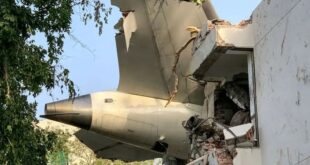
Saudi Arabia has strongly condemned Iran’s recent missile attack on Qatar, describing the assault as a blatant violation of international law and an unacceptable act of aggression against a fellow Gulf nation.
In a statement issued by the Saudi Ministry of Foreign Affairs on Monday, June 23, the Kingdom expressed “its condemnation and denunciation, in the strongest terms possible,” of Iran’s missile strike on Al Udeid, the U.S. military base near Doha.
The ministry emphasized that Iran’s actions were not only a breach of international norms but also undermined the principles of good neighborliness. “This constitutes a flagrant violation of international law and an entirely unacceptable act that cannot be justified under any circumstances,” the statement read.
Saudi Arabia also pledged full solidarity with Qatar, offering its “unwavering support” and making all its capabilities available to assist in any measures Doha might take in response.
The condemnation follows an attack by Iran on Monday, in which ballistic missiles were launched at the Al Udeid airbase in retaliation for U.S. strikes on Iranian nuclear facilities over the weekend. Explosions lit up the sky above Doha, although Qatari defense systems reportedly intercepted the incoming missiles, preventing casualties.
U.S. defense officials confirmed no American personnel were injured or killed during the incident, while President Donald Trump characterized the Iranian response as “very weak,” noting that Tehran had issued a warning before the attack, allowing for adequate defensive preparations.
Iran’s Foreign Ministry has defended the strike as a proportionate retaliation for what it called an illegal and provocative assault on its nuclear infrastructure. However, international reaction remains mixed. French President Emmanuel Macron criticized the U.S. attack on Iran as lacking legal justification, even as he affirmed France’s opposition to Iran acquiring nuclear weapons.
The escalating tensions in the Gulf region have sparked fears of a broader regional conflict, prompting urgent calls from global leaders for restraint and renewed diplomatic dialogue.
As the situation develops, attention now turns to whether the reported ceasefire efforts between Iran and Israel, brokered indirectly by the U.S., will lead to a de-escalation of hostilities in the Middle East.
 GhArticles.com Every News in Detail
GhArticles.com Every News in Detail


